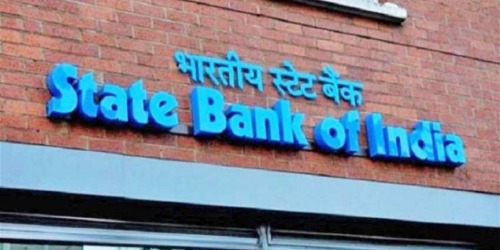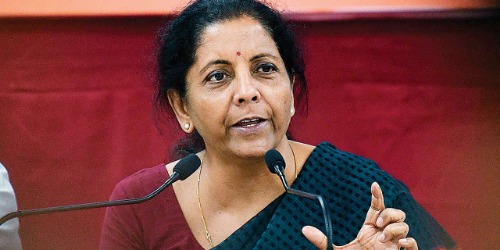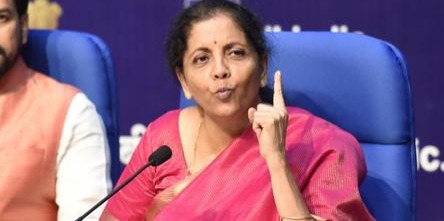Andhra Pradesh becomes 1st state in India to reserve 75% private jobs for locals

Andhra Pradesh has become the first state in the country to offer 75 per cent reservation to locals in private jobs. Andhra Pradesh Assembly on Tuesday passed the Andhra Pradesh Employment of Local Candidates in Industries/Factories Act, 2019, under which privates jobs across factories, industrial units, joint ventures, private projects will be reserved for local Andhra people.
Fulfilling his poll promise, Chief Minister Jagan Mohan Reddy said his government, for the first time in the history of the Telugu state, had provided over a lakh permanent jobs to the locals. During his state-wide Prajasankalp Padyatra before the 2019 Lok Sabha elections, the YSRCP chief had promised to create jobs for locals. "The proposed Bill will ensure employment to 75 per cent of the local candidates in industries/factories, joint ventures and projects taken up under the PPP mode," a government notification said.
While other states are also mulling high reservation in private jobs for residents, they haven't implemented it. On July 9, Madhya Pradesh announced that it would bring in a legislation to provide 70 per cent reservation in private jobs for locals.
The new law in Andhra will now require private companies to train locals if people with suitable skills are not available. "This will help the person who has lost their lands and their occupations for facilitating the establishment of industries and other unemployed youth by ensuring that their livelihoods are guaranteed and sustained," said the government in a statement.
- 0
- Leave a comment
Chandrayaan 2 Lifts Off; "Bounced Back With Flying Colours," Says ISRO

India's moon mission Chandrayaan 2 lifted off from its launch pad at Andhra Pradesh's Sriharikota at 2:43 pm today on board a giant heavy-lift rocket. India's space scientists had a narrow one-minute window for their second attempt at launching the moon mission today, a week after the mission was aborted 56 minutes before lift-off.
In visuals, scientists at the Indian Space Research Organisation's control room closely watched the rocket as it gained speed and headed towards the outer atmosphere, propelled by the massive thrust from the powerful 640-tonne rocket.
Minutes later, the rocket successfully put Chandrayaan 2 into Earth's orbit - and a booming applause reverberated inside the control room as the scientists who have been working hard for the mission congratulated one another, hugged and shook hands.
"I am extremely happy to announce that GSLV Mark 3 successfully injected the Chandrayaan 2 into orbit... It is the beginning of a historical journey for India... We fixed a serious technical snag and ISRO bounced back with flying colours," ISRO Chairman K Sivan said, drawing loud applause from the scientists gathered around him at the control centre.
The GSLV Mark 3 - ISRO's largest and most powerful rocket - is 44 metres long or as tall as a 15-storey building. The 20-hour countdown for the launch of the Rs. 1,000-crore mission began Sunday evening at 6.43 pm.
The rocket propelled into space an orbiter, a lander 'Vikram' (named after ISRO founder and eminent Indian scientist Vikram Sarabhai) and a moon rover 'Pragyaan'. Once the Vikram lander separates, it will head to a region on the moon that is little explored till date - most lunar landings have taken place in the northern hemisphere or in the equatorial region.
A mission by China landed in the northernmost part, followed by Russia's Luna missions. Most of the American lunar landings, including Apollo missions, were in the Moon's equatorial region.
The success of Chandrayaan 2 mission will make India the fourth country after the US, Russia and China to pull off a soft landing on the moon.
The mission was stopped 56 minutes and 24 seconds before its launch last Monday after a technical snag was discovered in the unmanned launch vehicle system. ISRO said the decision was taken "as a measure of abundant precaution".
After the soft landing on the moon, or as K Sivan terms it, the "15 minutes of terror", the rover will carry out research, including a thorough mapping of the moon's resources, looking for the presence of water on the moon and clicking high resolution images as well.
The ISRO chairman has called Chandrayaan 2 the "most complex mission ever undertaken by ISRO".
Good news! After NEFT, RTGS, SBI makes all IMPS transactions free

In a big relief to SBI customers, the public sector bank has said it will not impose IMPS (Immediate Payment Service) charges from August 1, 2019. The SBI IMPS charges will also be zero for the users who want to transfer funds via its app Yono, internet banking and mobile banking.
"The bank will waive-off IMPS charges for its INB, MB and YONO customers effective from August 1, 2019," the state-owned lender said in a statement.
Earlier, the country's largest lender had waived off IMPS charges on fund transfer of up to Rs 1,000 only. However, from August 1, there will be nil charges on all other IMPS slabs ( Rs 1,001 to 10,000; Rs 10, 001 to Rs 25,000; Rs 25,001 to Rs 100,000; Rs 100,001 to Rs 200,000).
IMPS is an interbank electronic fund transfer service, which is available round the clock. In July, the state-owned bank had also waived off NEFT (National Electronic Funds Transfer) and RTGS ( Real Time Gross Settlement System) charges, after the Reserve Bank of India(RBI) decided to do away with the charges with an aim to move the country towards less-cash economy.. The RTGS is meant for large-value instantaneous fund transfers while the NEFT System is used for fund transfers up to Rs 2 lakh.
At March-end, 2019, the number of SBI customers using internet banking were more than six crores, while 1.41 crore persons were using mobile banking services.
The bank claims to have around 18 per cent market share in mobile banking transactions.
Nirmala Sitharaman says Budget 2019 paints 'big picture' of new Modi govt

In her reply on the debate over the Union Budget 2019 on Wednesday, Finance Minister Nirmala Sitharaman said at the Lok Sabha that the budget gives a "big picture" of the new Narendra Modi government that has been brought back to power after a resounding victory in the General Elections this year.
The minister added that the projected strength made in the Budget is realistic and reflective of the goals of the government. In her reply at the Lok Sabha, Nirmala Sitharaman said, "This Budget certainly comes at a time when an Interim Budget had already been presented and it's the last year of the 14th Finance Commission. This Budget has two bookends and it gives a big picture of this newly-elected government which has returned to power with a bigger mandate."
She spoke about the farmers and said that the Budget took care of the 'kisaan' of the country. "We have ensured cash transfers of Rs 6,000 for all farmers throughout the country and not just a few," she said.
The Finance Minister also spoke about the government's commitment towards the education and health sectors. "The Budget 2019-20 reflects the commitment of this government to substantially boost investment in agriculture, social sector, particularly in education and health, keeping the fiscal deficit at 3.3% of GDP as against 3.4% which was envisaged in the Interim Budget," she said.
Nirmala Sitharaman's maiden Budget was condemned by opposition leaders such as Shashi Tharoor and Adhir Ranjan Chowdhury. "There is nothing new, it is a repetition of old promises. They are talking about new India but the Budget is the same old wine in a new bottle. There is no plan for employment generation, no new initiatives," said Chowdhury.
Angel tax woes to continue as Budget 2019 offers little clarity

Indian start-ups, which were hoping for the Finance Minister Nirmala Sitharaman to resolve the taxation woes of the community, seemed disappointed with what has been offered to them. The Budget speech trivialising the issue said "To resolve the so-called 'angel tax' issue, the start-ups and their investors who file requisite declarations and provide information in their returns will not be subjected to any kind of scrutiny in respect of valuations of share premiums". The Budget speech added that the issue of establishing identity of the investor and source of investors' funds would be resolved by putting in place a mechanism of 'e-verification' and funds raised by start-ups will not come under the scrutiny from the taxman. In what looks like a move that is likely to increase bureaucratic interference, a 'special administrative arrangement' has been promised to be made by the Central Board of Direct Taxes (CBDT) for pending assessments of start-ups and redressal of grievances. Finance Minister also ensured that no inquiry or verification in such cases can be carried out by the Assessing Officer without obtaining approval of his supervisory officer.
Expressing his disappointment, T. V. Mohandas Pai, Partner, Managing Director and Chairman of Aarin Capital said "Initially the law was being misused and notices were being sent. Now the FM says that they will ensure that taxmen don't send notices. So, she is just stopping harassment. This is not an incentive". However, he hopes that assurances will result in actionable measures being taken by the government. Nikunj Bubna, who had to shut his start-up Whats Extra owing to angel tax issue, says he is happy to see importance given to start-ups in the finance bill . However, he says that even though the government knows that more than 200 start-ups have already been affected by this issue, there has been no resolution to the problem. "We were hoping the matter to be put to rest in an unambiguous manner, but that remains and nothing much has been done for start-ups that are struggling with the issue," says Nikunj.
Vivek Gupta, Partner and National Head for KPMG India's M&A/ PE Tax practice says that the move to ease start-up friction on angel tax is welcome and the follow-up implementation should happen as promised where assessments orders have already been passed. "I don't think the appeal process in respect of those orders can be stopped," he says. While there could be sympathetic approach to start-ups during appeals, the new provisions regarding this matter clearly indicates the intent of easing the process. "We will have to see how the implementation happens," he added.
While there is no clarity if this would be applicable to start-ups where assessment notices have already been sent and to those where orders have been passed, Sreejith Moolayil - Co Founder & COO of True Elements feels the Budget has brought back more powers to bureaucrats. Sreejit is one of start-up founders against whom an assessment order was passed in spite of compliance with all prescribed rules "Now with a committee to look at start-ups with respect to orders and requirement of senior officers approval for looking at valuations and investments, there is no structural change," said Sreejith. While status quo continues for now, it was around mid-2017 when start-up companies started receiving notices. India's noted angel investors like Kris Gopalakrishnan, Mohandas Pai and Indian Angel Network (India's largest angel network forum) had raised their concerns with the commerce ministry, DIPP and also Finance ministry over these provisions. Most stakeholders in the start- up ecosystem agree that nothing much has changed on the ground.


